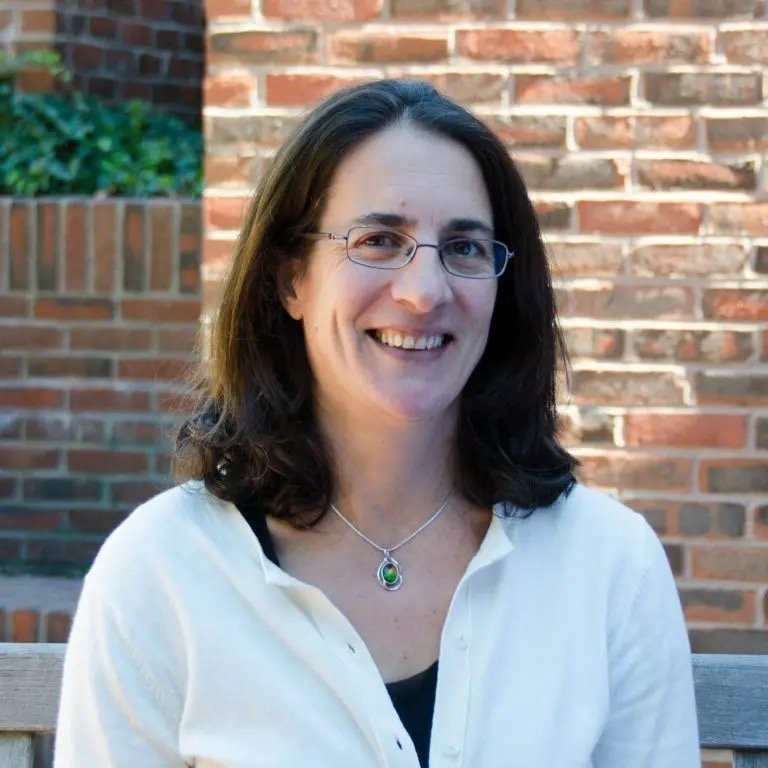Leslie Gehry Prize for Innovation in Science
Each year the Hereditary Disease Foundation presents the prestigious Leslie Gehry Prize for Innovation in Science, created to honor the memory of Leslie Gehry, the late daughter of HDF Founding Director and renowned architect Frank Gehry.
The Prize was created as a collaboration between HDF and Frank Gehry and his family to honor Leslie’s memory and recognize scientists who have made extraordinary contributions to the field of Huntington’s disease research. Leslie celebrated life with joy and this prize reflects Leslie’s many talents and gifts – originality, spontaneity, precision and rigor –all critical attributes in a scientist.
This prize is awarded by the Leslie Gehry Prize Committee, comprised of previous prize recipients and some members of the HDF Scientific Advisory Board.
Each prize winner is recognized for HD research that is innovative and leads to new advances in science seeking a cure for this disease.
Current Recipient
2023 - Dr. Vanessa C. Wheeler (Harvard Medical School, Massachusetts General Hospital) receives the thirteenth Leslie Gehry Prize for Innovation in Science. Dr. Vanessa Wheeler’s research on somatic instability laid the groundwork for what has become the most prolific topic in Huntington’s disease research this decade, as understanding somatic instability is thought by many leading scientists to be the route to the cure. Well before the term “somatic instability” was on the lips of every HD researcher, Dr. Wheeler was connecting dots related to this biological phenomenon, making connections for how it participates in HD pathology. Dr. Wheeler has been focused on somatic instability as the root cause of HD since the mid-2000s.
Huntington's disease is caused by a genetic expansion in a gene called huntingtin. When the expansion reaches a certain threshold, the person carrying that expansion will go on to develop HD if they live long enough. Over time, the expansion within the huntingtin gene increases in certain areas of the body – notably, the brain. This biological phenomenon of an increase in genetic expansion is called “somatic instability.” Scientific data now suggests that somatic instability is needed to trigger brain cell death in HD.
Past Winners
2022 - Dr. Steven Finkbeiner (Gladstone Institutes and the University of California, San Francisco) receives the twelfth Leslie Gehry Prize for Innovation in Science. Dr. Finkbeiner has studied Huntington's disease for over 25 years, solidifying himself as a leader in neuroscience at the forefront of understanding neurodegenerative diseases. He is best known for the invention of a robotic imaging device that helped capture the life of brain cells and the cellular and subcellular processes leading to their death in HD. He was among the very first in the world to implement deep learning to find cellular features that humans could not see. He has recently developed a new robotic microscopy pipeline that includes computer vision models trained to annotate neuronal degeneration in a dish at – as he defined – “superhuman” precision. Dr. Finkbeiner has also established the Taube/Koret Center for Neurodegenerative Disease Research at Gladstone to accelerate the identification of treatments for neurodegenerative diseases. The Center provides researchers around the world with access to comprehensive biological and clinical data from thousands of people with neurological diseases, setting the stage for machine-learning and artificial-intelligence analysis as a gateway to mechanisms and treatment of neurodegenerative diseases. For his advancements in developing these powerful, cutting-edge technologies to understand and develop treatments for HD, Dr. Finkbeiner has been honored with the 2022 Leslie Gehry Prize for Innovation in Science.
Elena Cattaneo
2021 - Professor Elena Cattaneo (University of Milan, Italy) receives the eleventh Leslie Gehry Prize for Innovation in Science. Professor Cattaneo leads a laboratory at the University of Milan focused on understanding the physiopathology of Huntington’s disease. Her goal is to develop pharmacological, genetic, and cellular strategies that slow down the course of HD or prevent its onset. Her laboratory works with HD clinical experts in Italy and globally to assess the diagnostic and therapeutic potential of research findings for clinical translation and application. She is also the co-founder and director of UniStem, the University of Milan’s coordinated center on stem cells which promotes access to information on the study of stem cells to a network of over 100 universities and research centers internationally. In 2013, Professor Cattaneo was appointed a Senator for Life by the President of Italy in recognition of her activities as a champion of science.
Ai Yamamoto
2020 - Dr. Ai Yamamoto (Columbia University) received the tenth Leslie Gehry Prize for Innovation in Science. Dr. Yamamoto made a stunning entrance into the field of Huntington’s disease research while she was still a graduate student in the laboratory of her mentor, Dr. Rene Hen. She demonstrated that HD might be reversible, something that no one had shown up to that point. Dr. Yamamoto is currently working on a protein called Alfy, which may delay the onset of symptoms of HD for as many as 23 years.
Scott Zeitlin
2019 – Dr. Scott Zeitlin (University of Virginia) received the ninth Leslie Gehry Prize for Innovation in Science. Dr. Zeitlin’s breadth of knowledge and deep commitment to vanquish Huntington’s disease have had a tremendous impact on HD research. His work is creating an arsenal of tools the global research community needs to understand the cause of Huntington’s disease and to develop potential medicines. His generosity in sharing the tools he creates before publishing his results has accelerated the pace of HD research throughout the world. Scott has been a trailblazer in the development of mouse models to study the role of the normal and abnormal huntingtin proteins in HD. These mouse models have been widely adopted by academic and biopharmaceutical company researchers not only to uncover some of the mysteries of Huntington’s disease, but also to discover new medicines for developing treatments.
C. Frank Bennett
2018 – Dr. C. Frank Bennett (Ionis Pharmaceuticals) received the eighth Leslie Gehry Prize for Innovation in Science. Dr. Bennett’s pioneering work has helped with the development of a new class of drugs called ASOs responsible for the world’s first approved treatment for spinal muscular atrophy, and for the recently completed initial phase of the first clinical trial in HD. These trials resulted in a groundbreaking advance for the field of HD, by demonstrating that the treatment is safe and significantly lowers the amount of harmful huntingtin protein in HD patients. Roche is poised to start phase 3 trials later this year.
Sarah J. Tabrizi
2017 – Dr. Sarah J. Tabrizi (University College London, England) received the seventh Leslie Gehry Prize for Innovation in Science. Dr. Tabrizi has channeled her passion for Huntington’s disease research to discover effective new treatments that prevent or reverse the neurodegenerative process. Sarah is the clinical global Principal Investigator for the world’s first “gene silencing” clinical trial in HD, sponsored by Ionis Pharmaceuticals.
Anne B. Young
2016 – Dr. Anne B. Young (Massachusetts General Hospital, Harvard Medical School) received the sixth Leslie Gehry Prize for Innovation in Science for her pioneering research on the area deep in the brain called the basal ganglia which controls movement. She is dedicated to discovering novel, innovative and affordable treatments and cures. Dr. Young leads with creativity, imagination, catalytic force, grace, brilliance, humor, kindness, warmth and empathy.
Beverly Davidson
2015 – Dr. Beverly Davidson (Children’s Hospital of Philadelphia, University of Pennsylvania) received the fifth Leslie Gehry Prize for Innovation in Science for her work on “gene silencing”– turning off the Huntington’s gene – as potential treatments and cures for Huntington’s disease and other neurological disorders.
X. William Yang
2014 – Dr. X. William Yang (University of California, Los Angeles) received the fourth Leslie Gehry Prize for Innovation in Science for his work creating and characterizing mice with specific “on/off” signals for the HD gene. The findings shed light on what goes wrong in HD and offer insight into which brain areas to direct new treatments towards.
Leslie Thompson
2013 – Dr. Leslie Thompson (University of California, Irvine) received the third Leslie Gehry Prize for Innovation in Science for her work on stem cells and Huntington’s. Stem cells are powerful tools that are opening many new research avenues, including the development of new models of HD derived from human cells.
Gillian Bates
2012 – Dr. Gillian Bates (University College London, England) received the second Leslie Gehry Prize for Innovation in Science for her work creating and learning from Huntington’s disease mouse models.
David Housman
2010 – The first Leslie Gehry Prize for Innovation in Science was awarded to Dr. David Housman (Massachusetts Institute of Technology). Dr. Housman’s research to discover the Huntington’s disease gene helped launch the Human Genome Project.














